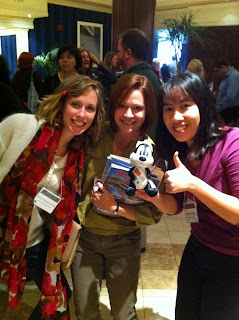Reflective Practice
Hi All, As the end of the fall semester approaches, I plan to meet with writing tutors individually to discuss how the semester went (e.g., strengths they feel they exhibited, target areas for improvement, challenges they faced, questions/concerns they have, etc.). Have you found any questions/approaches to be particularly useful when having such conversations with tutors/consultants? And, more generally, I am interested in effective strategies for generating a reflective practice in the writing center. In other words, what have you done to get tutors/consultants to discuss not only issues that come up in their work with students on writing but to reflect on their own tutoring/consulting practices and engage in dialogue about their practices? Thanks! A Reflective Practitioner
